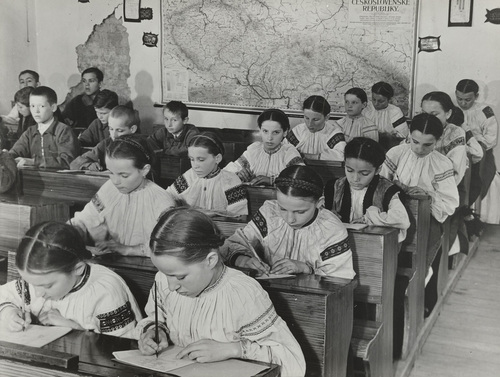So, I've just ordered a proof copy of my book and I'm waiting to receive it. Once it arrives, if it's OK, I shall order more and be sending them out for review. I hope many reviewers will choose epub or mobi versions, but a few will want the paperback. (I have to say I have sweated blood over the paperback to make it as much like a trad-published book as possible. This is because that's what the reading public expect - a good cover, well-edited content, thoughtful presentation. After all, I hope readers will be actually paying me money for it.)
 Posting the Book
Posting the Book
Although I love the idea of recycling, I always think it looks a little untidy when sending review copies out, to have sellotaped, re-used bags. What do you think? Do you always buy new envelopes, or recycle ones from your enormous online ordering history? Do you care if the person is saving the planet or would you rather receive a pristine envelope? If you receive a recycled envelope do you imagine a tree-hugger with a garden full of organic veg and a wind turbine in the garden, and possibly dungarees and dreadlocks? Or do you imagine an impoverished single mum scraping together her last few coins to send you a book that she hopes will be paying the bills to put her kids through education?
Okay, okay, I'm getting a bit carried away here. I guess being professional is the answer. A nice neat
new envelope then. But it's an interesting question - how much does the packaging affect your perception of the product? Do you actually like Amazon's cardboard envelopes?
And then - decisions, decisions! First class or second class. Does second class make me look like a penny pinching miser? First class definitely gives the impression I care enough for it to get there quickly.
Internal contents
Someone suggested that I should include an A4 sheet with more information about the book along with the review copy. Another friend suggested postcards that the reviewer can give to friends. I have to say I'm favouring the former right now. But too much stuff in the envelope (as a reviewer) might make me suspicious that the author/publisher is trying too hard. Especially if it's stuffed with banknotes. Ha! Chance would be a fine thing.
Feel free to tweet me @davina_blake with any advice about packaging books for review. Or to tell me to
get a life!
The photo of wrapped books is from
Nic Freeman's Blog in which he randomly posted copies of a book to five people. That sounds a nice idea. And the picture below is linked to Elizannie's Blog in which she gives a potted history of the Post and discusses the privatisation of the Royal Mail. My postie certainly works hard dragging all my orders from the big A to my front door!








